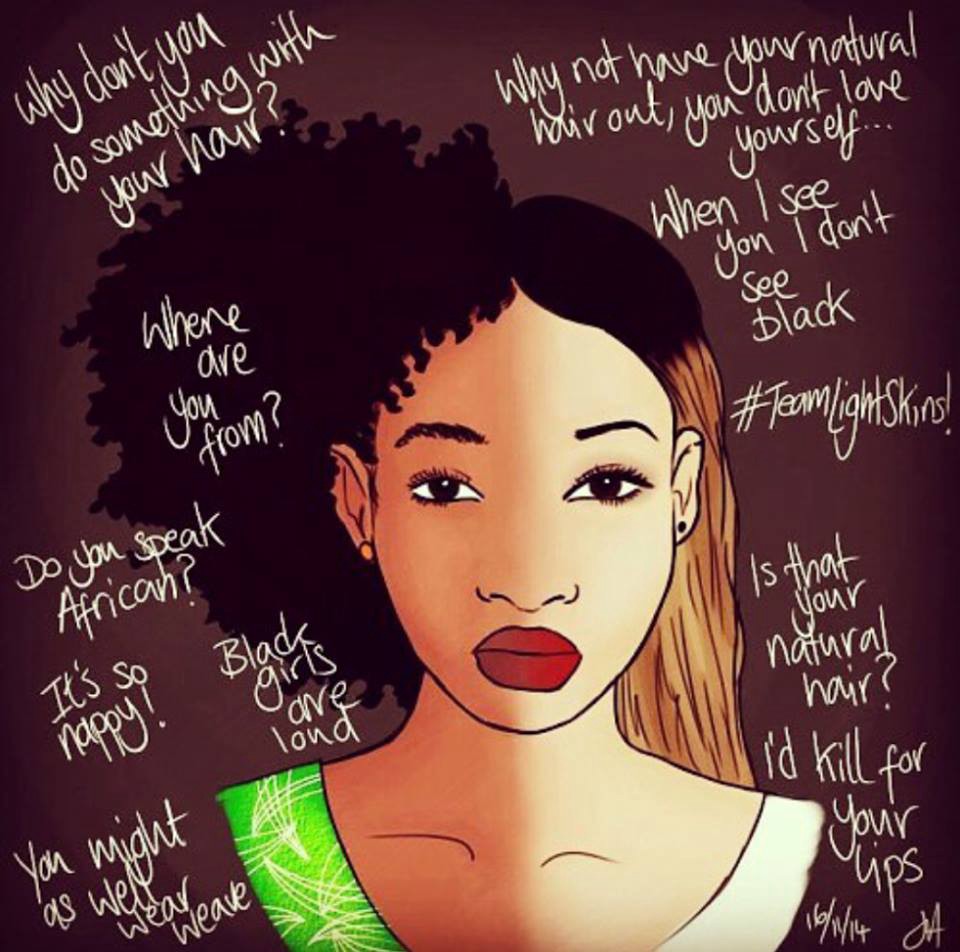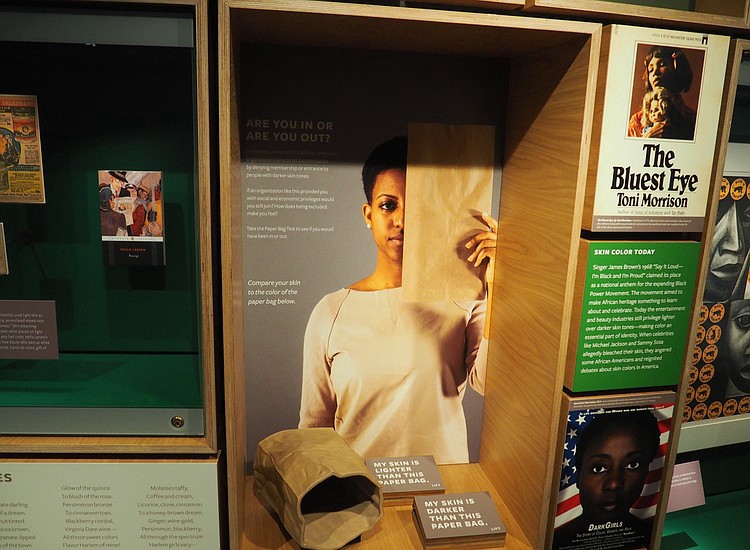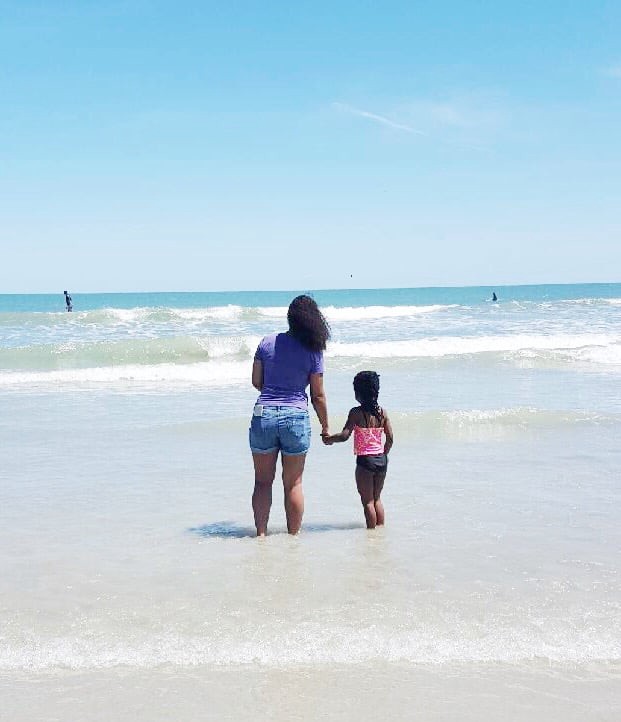?We are beautiful because of our blackness, not in spite of it.?

As a mother at times it is hard enough to get through the everyday struggles of parenting, and as a black mother there comes a whole host of other obstacles we are challenged with. In society we often discuss black parenting in regards to race, but rarely do we talk about parenting in regards to colorism.
Colorism is an issue that has been present within the black community for quite some time. It is a symptom of racism. To educate those that are unaware or unclear, it is prejudiced attitudes or discrimination based on the tone or shade of one?s skin complexion. Racism on the other hand, is prejudgment against people based on their perceived racial status.
Slave owners engaged in colorism with the practice of separating and giving preference to slaves with lighter complexions. This included allowing them to work indoors and assigning them with less grueling work. Dark skinned slaves were treated much harsher and inferior to their lighter counterparts.
Later on, the brown paper bag test would be implemented within our own community to determine admittance. If your skin was darker than the bag, you did not merit inclusion. Today, the paper bag test is gone but we see reminders of how colorism continues to affect black people everyday.
Especially our women.
I myself, as a light skinned woman of color with bi-racial heritage have experienced it throughout my life. And it became even more apparent to me when I become a mother to a darker skinned daughter.
It brought me increased awareness and forced me to face my own guilt as a mother benefiting from my skin tone. A part of me hates that long ago I might be a slave in the house, while my daughter would be in the field.
I had this awakening when taking her to the Smithsonian Museum of African American History & Culture. At the time my daughter was only 6 yet was intrigued by their brown paper bag exhibit. She put her hand up to the bag and as she began asking me questions I felt this sense of guilt come over me.
 Brown bag exhibit at the Smithsonian Museum of African American History & Culture
Brown bag exhibit at the Smithsonian Museum of African American History & Culture
Being the socially conscious woman that I am, I always knew colorism was very real, but it became even more eye opening for me when I began having these raw moments more often.
And to add insult to injury we do live in Tennessee, home of the Ku Klux Klan, where trucks draped with confederate flags are an almost daily sight, and progression in regards to race is still reminiscent of the 50?s at times.

To give some background on myself, I am the daughter of a white mother and Afro-Latino father. My father is very dark skinned, often mistaken as African. His genes are extremely strong which is noticeable in my own physical features, so I?m often assumed to be a fairer skinned black girl opposed to bi-racial.
My daughter?s father is African American with a darker complexion, our daughter?s is similar to his. Her complexion was not at all a surprise to me when I had her; I was not a mother praying for a light skinned child with curly hair. In my eyes, black in all shades has always been beautiful.
What I was not prepared for, was black people within my own community, questioning if she was my daughter. I receive questions and comments like ?is that your daughter??, or ?oh she must look like her dad?, simply because we are not the same complexion. This just goes to show the lack of education that exists with some of our own people.
Do they not understand we are magical beings that are capable of creating offspring with features most only dream of? Black children can be born a different complexion than their parents. Black men and women across the globe are aesthetically different .We come with red and blonde hair, different hair textures, facial features, and eye color.
As a light skinned woman I grew up experiencing different instances of colorism myself. I have been questioned about my race and ethnicity, and witnessed black boys make jokes about dark skinned girls, many of whom were my own friends.
There were times during my life where I am almost 100 percent sure that I benefited by being light skinned. I also continue to experience it today. I hate the fact that my skin tone gives me or anyone else any sort of privilege. I am not proud of it. I am also aware that my resentment is an issue of colorism. That awareness gives me a responsibility to speak out on it when I see it, because I stand for all of my sisters.
I believe in my adolescence is where my apprehension toward men with skin tone preference came, as well as my hesitance to go around telling people that I am ?bi-racial?. It was never that I wished to deny my background or my mom. I just never wanted to be that girl who got a pass because she was lighter, and I did.
I never wanted to be that girl that some chose because I was mixed, but I did. I grew up hating my privilege. Perhaps this is why I have always stated that I am a black woman. In my eyes, that is all one needs to know. Why give satisfaction to those who want to simply deny that blackness is the reason for my beauty? We are beautiful because of our blackness, not in spite of it.
This is the same narrative I openly express to my daughter. There was a time when she was 3 years old that we were at home, and I was applying lotion to her skin, and she began to cry. Obviously I was extremely concerned, and when I asked her what was wrong she asked, ?Mommy why don?t I have the same skin color as you? I want to be like you?. This broke my heart.
I pleaded with her to tell me where all this was coming from. She proceeded to tell me that a boy in her preschool class told her that her skin was ?stinky because it was brown?. This came from a 3year old!
I can?t really put into words the feelings that came over me, but it was somewhere between outrage and sadness. I also felt bad that she wished to be something else and guilty because that something else was me. This was the moment that I knew I had to have ?the talk? with her.
For those that do not know what ?the talk? is, it is the discussion that every black parent has to have with their kids at some point that let?s them know there are people in society that won?t like them because they are black, or that in order to not be gunned down by the police they must live by an entirely different set of rules than their white peers.
Never in a million years did I think this discussion would be so soon for me, and definitely not while my child was 3 years old. There came a second time at the age of 6 where another white boy made racially charged comments to my daughter. Luckily at the time, she had an amazing teacher who came to me about it. By this time, my daughter was much more secure in her identity.
Each one of these experiences was sickening and hurt me to my core. Black parents should not have to have these talks with their children, but the harsh reality is that we do.
White people will never understand what it is like to have to constantly reinforce the presence of their daughter?s beauty to them all because of their skin color.
And based on my own experiences, never will a white person ever be able to tell me that racism doesn?t exist. I have witnessed it. I have breathed it. I have lived it. And when it comes to my child, I will hold back no punches.
I have learned so much through my daughter. It has given me a chance to see the world through a different set of lenses and also introduced me to more of myself. Over the years I have worked hard in teaching her and showing her that she is beautiful.
Because of our experiences I knew it was my duty as a black mom, and one of a different skin tone to constantly reinforce to her that black is beautiful. Some of the ways I have pushed this is through teaching her black history, gifting her black dolls, preserving her natural hair, allowing her to be present with me at the voting booth, social justice events, and involving her in activities with children that look like her.
She has come to love the skin she is in now, and at 8 years old she openly speaks out about loving her blackness and I am so proud of that.
We have to get to a point in the black community where we stop allowing colorism to separate us. Our little black girls already have enough outside influences effecting their self-esteem. I have mentored young girls who I have heard openly state that they wish they were lighter skinned and this is not something we should be proud of.
To black men, stop openly stating your preferences for light skinned women. You never know when a young girl is listening. What you like is not important to the world, but the messages you send very much are. To the women who openly express they want their unborn children to be a certain complexion, I hope you realize that you are complicit in what is plaguing us. Who taught you to hate yourself?
Our light skin is not a personality trait.
It is not easy knowing that throughout my daughter?s life there will be more talks we will have to have based on the willful ignorance and stupidity of others, but I am prepared. I only wish for all our little black queens to understand that they are beautiful.
Societal norms are not on our side, so it is our responsibility as mothers and fathers to continue pressing this and reinforcing the narrative that black is beautiful.
This world has conditioned them to think that their worth lies within their physical appearance. Teach them to love themselves and make sure that they know that in their intelligence also lies their beauty.
I thank God everyday for the lessons and skills motherhood has taught me. It is through my daughter and her own experiences, that I have garnered the nurturing skills necessary to raise her into a strong black woman. One who treats all people with dignity and respect, and knows that she is inferior to no one.
Angela Dennis is a Freelance Writer and Blogger residing in Knoxville, TN.She can be found on Facebook at Facebook.com/AngelaDennisWrites and Twitter @ForeverAngela


